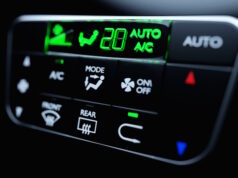
Sleep deprivation is steadily increasing. Demands of modern-day life are causing many people to accept poor sleep as the new normal. For people experiencing sleep deprivation, it can be easy to fall into habits that make the situation worse before it can get better.
If this is you, or someone you know, things can undoubtedly start improving when you start focussing on making small improvements step by step.
We are breaking down the 4 most common mistakes people experiencing sleep deprivation can make. We are also providing some solutions to fix these mistakes, such as how to select the best mattress to help with sleep deprivation, and how you can improve your diet to start sleeper better.
What is sleep deprivation?
Sleep deprivation occurs when people don’t get enough sleep consistently. This doesn’t mean missing a couple of nights of a full 8 hours of sleep. Sleep deprivation is when you don’t get proper sleep night after night. While the necessary amount of sleep can differ from person to person, the recommended hours of sleep for adults is 7 hours.
Now, you might get 6 hours of sleep per night and feel completely fine. That’s okay, as long as you feel energized throughout the day. When a lack of sleep begins to impact daily functioning such as energy levels, mood, decision making, attention, and alertness, sleep deprivation symptoms may begin to develop.
Many people take medication for sleep deprivation. Studies indicate that around 4 percent of adults are taking sleep medication to get a good night’s rest. Some people experience acute sleep deprivation that requires medical intervention. Other types of sleep deprivation can be managed more naturally.
The following mistakes are quite common among adults dealing with sleep deprivation, and identified solutions are worth a try if you want to learn how to sleep better.
Mistake 1: Sleeping in an uncomfortable bedroom
Take a look around your bedroom. Sleeping in an uncomfortable bedroom is a surefire way to struggle with sleep. Clean up and optimize your bedroom space for better sleep. Improving the design of your bedroom should start with your mattress.
Start by doing some research online about the top-rated mattresses.
There is no doubt you will stumble across memory foam mattresses – they are generally considered to be the most comfortable mattress for support, cooling, and contouring. These features are essential when you are struggling to sleep.
Also, ensure you have a quality pillow. If your pillow is causing neck and shoulder strain, a memory foam pillow might help. The best memory foam pillows are adjustable in height, which means you can customize the feel so it’s just perfect for you.
Making your bedroom comfortable also includes removing clutter. Creating storage solutions such as buying a storage bed frame or cleaning the room of things you don’t need can minimize dust and increase comfort, helping reduce sleep deprivation symptoms.
Mistake 2: Inappropriate napping
There is such a thing as an inappropriate nap. Sleep-deprived people often find themselves napping at random times throughout the day. Napping can be problematic when it takes away sleep during the night.
To feel rested, we must experience the sleep cycle entirely. Allowing the mind and body to enter the four stages of sleep entirely is what leads to a rejuvenated mind.
Putting an end to sleep deprivation is possible when you create a sleep schedule. Set the alarm for bedtime as well as one for the morning. This way you will start to prime the body to create a sleep schedule. Also, if you do like to nap, schedule a nap in so you can keep track of when napping helps and when it might be adding to sleep deprivation in the night.
Mistake 3: Driving when sleepy
There are many safety concerns linked to fatigue. One of the key contributors to fatigued drivers is sleep deprivation.
Studies have found that driving while sleepy is just as dangerous as driving under the influence of alcohol. The way that sleep deprivation impacts cognitive functioning is quite similar to the impact that alcohol has on the brain.
If you are highly fatigued, opt for other methods of transport such as a train, bus, taxi, Uber, or ask a friend to give you a lift. This will help you reduce stress and allow you to focus on getting better sleep so you can get back on the road as safely as possible.
Mistake 4: Bad diet
Many sleep-deprived people have intense sugar cravings, which can lead to a very unhealthy diet. It can be an endless cycle; the more sleep you lose, the higher the sugar cravings.
Excessive sugar is a nightmare when you are trying to improve sleep and eliminate sleep deprivation. Not only does it increase cravings, but it can also impact breathing, increase inflammation, and lead to an unhealthy gut. Furthermore, consuming sugar just before bed increases the heart rate making it hard to fall asleep. If you are sleep deprived, quitting, or reducing sugar can help you get on a path towards better sleep.
It is possible to overcome sleep deprivation and start sleeping better. It just takes a little planning. Take it step by step, and soon enough, you’ll start feeling the incredible benefits of better sleep.












